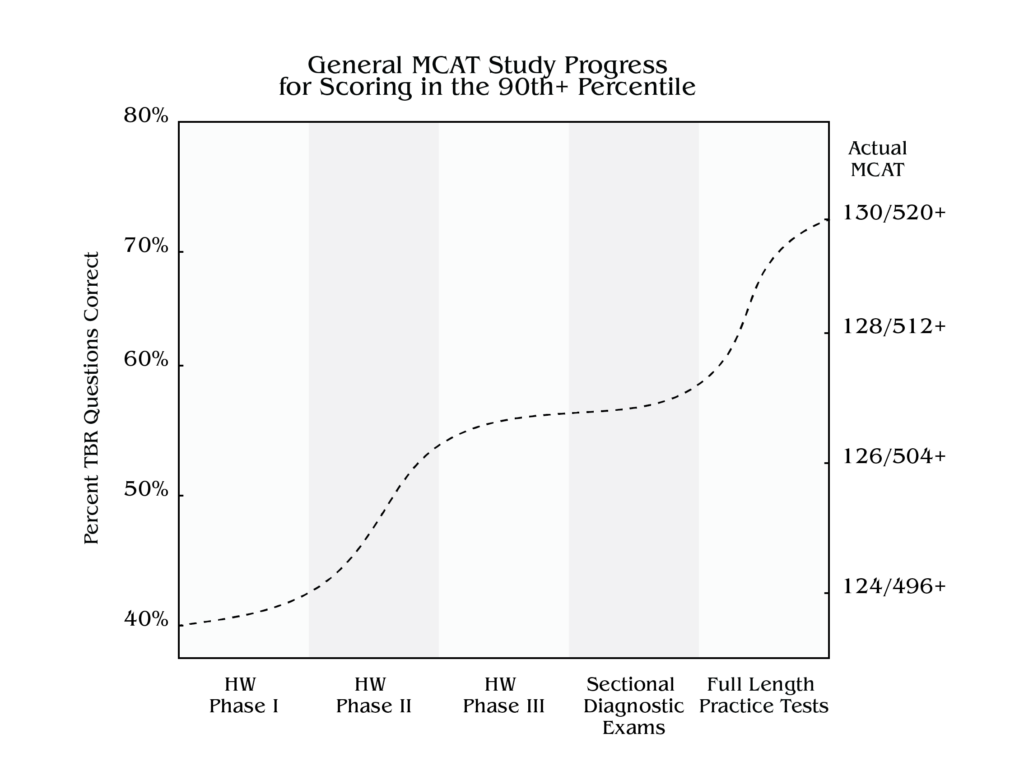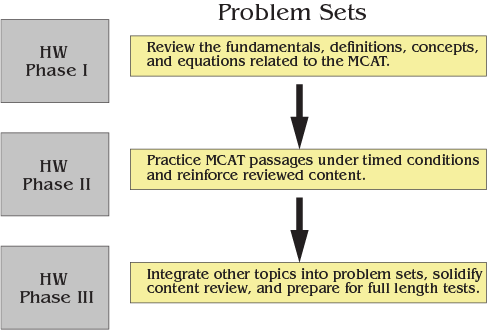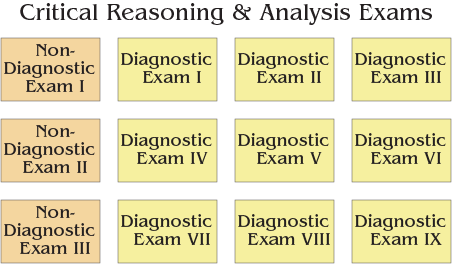
Make the Most out of The Berkeley Review’s MCAT Books
So, you have done your due diligence and researched the best ways to prepare for the MCAT.
Now what?
It’s finally time to orient yourself with the material – let the fun begin!
The Berkeley Review MCAT review books have gone through 18 editions total, and have been redesigned and rewritten to evolve with each new iteration of the MCAT dating back to the old paper and pencil versions of the test. The books are not only the best and most thorough way to study for the MCAT, but have slowly become valuable undergraduate tools for premedical students to use as content aides in their prerequisite courses (e.g., general chemistry, organic chemistry, physics) and upper division biology courses (e.g., biochemistry, physiology, cell biology).
Apart from the detailed content chapters, TBR books are highly regarded in the market for their sheer number of challenging MCAT style passages after each subject – over 7,000 passage-based questions within the entire book set! Completing these passages is the single most important task before starting your practice full-length exams; in fact, we have found there is a strong correlation between the number of TBR passages completed and MCAT score.

A schematic showing the general progress of student’s working through the MCAT problem sets in TBR’s home study review books and practice exams. Practice questions in each phase of the homework expand skill sets for all advanced MCAT topics. Students who are able to get through the majority of these harder problem sets by actively completing HW phases typically score very high on exam day.
Biological, Chemical, and Physical Sciences Book Approach
The Berkeley Review’s suggested approaches for applied content review varies depending on the subject. For Biological, Chemical, and Physical Sciences, we use a three-phase approach. Each chapter totals between 15-22 associated MCAT-style passages broken down into three distinct problem sets (i.e., homework phases).
Phase I:
Read a chapter in the book and within 24 hours complete the corresponding phase-I problem set. DO NOT worry about question timing on phase-I homework as you are reintroducing yourself to each topic. We advise working directly in the books and taking notes next to each problem you get incorrect. It is also wise to record your score at the top of each passage to track your progress.
Phase II:
A few days to one week after working through phase-I, complete the corresponding phase-II problem set. TIME YOURSELF. Allot a strict 8.5 minutes per passage. Phase-II will help reinforce each topic while feeling the exam’s time pressure. Finish the passage if your time runs out but take notes to track your overtime. Also, analyze your results by taking notes on careless errors, content errors, and question interpretation errors. The more notes you take in the margins, the more you will understand your areas of weakness and be able to reference back to passages later in your studies.
Phase III:
The third problem set should be taken ~2-3 weeks after phase-II and before starting any full-length practice exams. Phase-III will reinforce critical concepts again, while also incorporating topics from other sections. By integrating subjects from other sections, Phase-III solidifies content review and is the checkpoint for starting full length tests. Make sure to time yourself.
After completing all 3 phases for a given section, review your notes written within the chapter and on each passage and make a one-page summary of any useful equations, concepts, tricks, or mnemonics.

Summary of goals for each TBR homework phase. The learning philosophy in each book differs slightly as the subjects themselves are different, but the basic idea behind the passages and questions is similar; You learn more by actively doing than by passively reading.
CARS Book Approach
Given the nature of the CARS section on the MCAT has no specific content to review, our TBR applied content approach deviates from the three-phase structure. Developing the active reading and comprehension skills required to do well comes from actively practicing CARS techniques on an abundance of passages. The most recent version of the TBR CARS books has therefor been loaded with three full non-diagnostic tests and nine full diagnostic tests, all with detailed answer explanations! The goal is to practice strategies presented in the books. It is important to track your progress and test each technique for long enough and in combination with other techniques until you can efficiently and effectively answer CARS questions.
List of full length exams included in The Berkeley Review’s CARS book. Twelve total 53-question non-diagnostic and diagnostic practice exams. Developing the right skills requires enough practice passages to see significant upwards score trends.

More Resources
While the books may seem daunting, we have solidified strategies to navigate the content and to get the most out of your studying. For a more detailed explanation of how to use the books from one of the authors and longtime Berkeley Review MCAT instructor, you can watch the video below.
Also, check out these popular study schedules so you can begin your studying!
